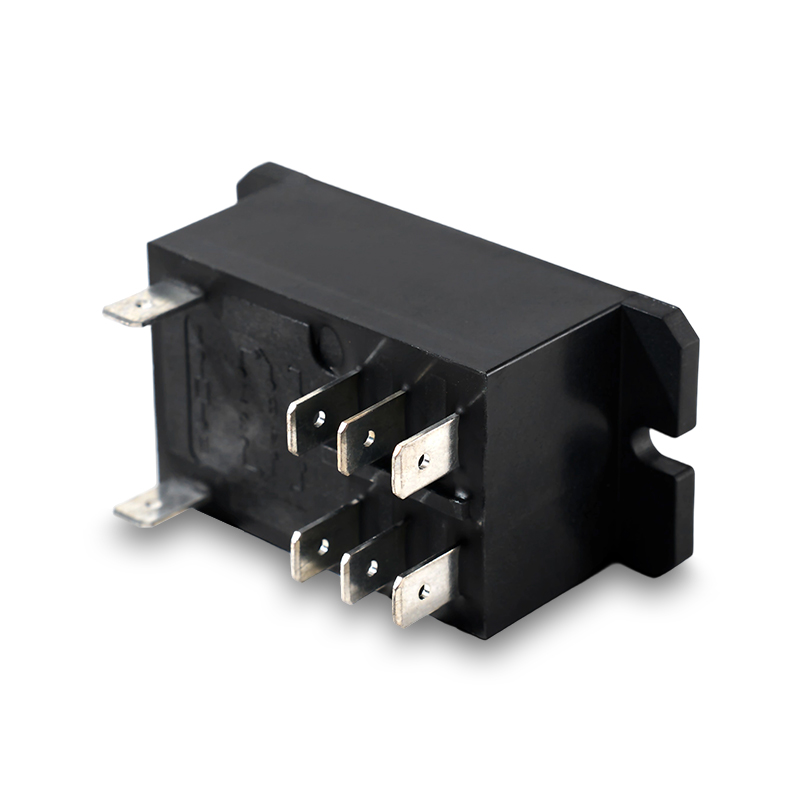Energy efficiency has become a primary goal in the design of modern household and industrial appliances. As consumers demand devices that use less power while maintaining reliable performance, the internal components of these appliances must evolve to meet higher standards. Among these components, relay technology plays a crucial role. Relays act as electrically operated switches, allowing low-power control signals to manage high-voltage circuits safely and efficiently. By providing precise control over current flow, relays help reduce unnecessary energy consumption and extend the life of connected equipment.

One of the key innovations in relay technology is the solid state relay automotive. Unlike traditional electromechanical relays that rely on moving parts to open and close circuits, solid state relays use semiconductor components to perform switching operations. This design eliminates mechanical wear, resulting in quieter operation and a longer service life. Solid state relays are especially valuable in energy-efficient appliances because they respond rapidly to control signals and generate small heat during operation. Their ability to handle frequent switching cycles without degradation makes them ideal for applications such as smart ovens, induction cooktops, and energy-saving HVAC systems.
Electronic timing relays provide another layer of efficiency by allowing appliances to operate within carefully defined time intervals. These relays are programmed to delay switching on or off, ensuring that equipment runs only when needed. For example, a washing machine equipped with an electronic timing relay can start its heating element only after water reaches the correct level, avoiding unnecessary energy use. In industrial settings, timing relays help coordinate sequences in conveyor systems or automated production lines, ensuring that each component runs at the proper time and reduces idle energy consumption.
Relays contribute significantly to household energy management systems by offering accurate and dependable switching. Smart refrigerators, dishwashers, and air conditioning units often rely on a combination of solid state relays and electronic timing relays to regulate compressors, fans, and heating elements. By responding to signals from temperature sensors or programmable controllers, these relays allow appliances to maintain desired settings without continuous power draw. This balance of precision and control not only lowers electricity bills but also reduces strain on the power grid during peak usage hours.
Relay technology is not limited to household appliances; it also supports energy-saving solutions in automotive applications. Modern electric and hybrid vehicles depend on relays to control battery charging systems, lighting circuits, and auxiliary devices. Solid state relays, in particular, are increasingly used in automotive electronics because of their durability and ability to operate silently in demanding conditions. By enabling efficient power distribution and precise switching, these relays help reduce energy waste and improve the overall performance of vehicle electrical systems.
As renewable energy sources like solar and wind become more common in residential and commercial settings, relay technology plays a key role in managing power flow. Solid state relays handle the switching of inverters and charge controllers with high efficiency, ensuring that stored energy is used effectively. Electronic timing relays further support these systems by coordinating charging cycles and preventing overloading. This integration allows households and businesses to take full advantage of renewable energy while maintaining stable power output.
The future of relay technology is moving toward greater intelligence and connectivity. Designers are developing relays that can communicate with smart home networks, providing real-time feedback on power usage and enabling remote control through mobile devices. Solid state relays and electronic timing relays will continue to evolve with improved thermal management and wider operating ranges, ensuring compatibility with emerging energy-efficient appliances and industrial systems. These advancements will support global efforts to reduce energy consumption and build more sustainable environments.
Relay technology remains an essential component in the ongoing pursuit of energy efficiency. From solid state relays that offer silent and durable switching to electronic timing relays that enable precise control, these devices empower appliances and automotive systems to operate with reduced energy waste. As energy-efficient appliances become more widespread and renewable energy systems expand, the demand for reliable relay solutions will continue to grow, making them a key element in the design of future electrical and electronic equipment.
Quick Contact
Yueshang Innovation Park, Wengyang Street, Yueqing City, Zhejiang, China
Pages
Stay In Touch
If you have any questions or need help, feel free to contact with our team.